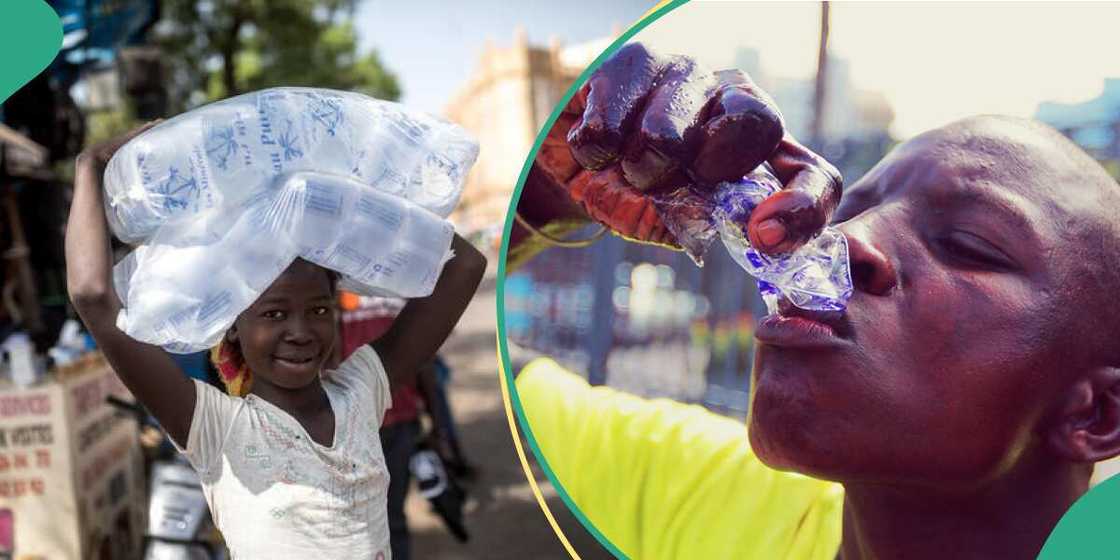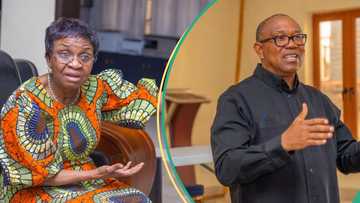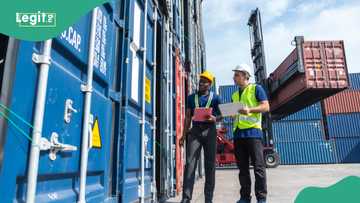Companies, Nigerians to Adjust As Lagos Announces Date to Begin Full Enforcement of SUPs Ban
- The Lagos State Government has announced plans to begin full enforcement of a Single-Use Plastics (SUPs) ban
- Tokunbo Wahab, the State Commissioner for Environment and Water Resources, confirmed this decision
- Companies and Nigerian citizens will have to comply with the new directive when the SUP ban is implemented
Legit.ng journalist Dave Ibemere has over a decade of experience in business journalism, with in-depth knowledge of the Nigerian economy, stocks, and general market trends.
The Lagos state government will commence full enforcement of the ban on Single-Use Plastics (SUPs) starting July 1, 2025.
This was disclosed by Tokunbo Wahab, commissioner for environment and water resources, via his social media handle.

Source: Getty Images
The state earlier began enforcing a ban on disposable food containers.
Wahab said the ban on Styrofoam had been a success, and shared plans for a ban on SUPs as part of the state government's push for environmental responsibility and sustainability.
He wrote:
“From July 1, 2025, the Lagos state government will commence full enforcement of the ban on Single Use Plastics (SUPs). We’ve been intentional and strategic with 18 months of dialogue, engagement and transition."
Wahab noted that the state had spent nearly 18 months in consultation and engagement with stakeholders, including marketers and producers, to ensure a smooth transition away from single-use plastics.
He reiterated that what has been deemed unacceptable in other parts of the world should not become standard practice in Lagos.
“Now, it’s time to act. We must protect our future and do what is right for the greater good.”

Source: Twitter
Lagos: Companies to adjust to new directive
The commissioner spoke during a visit by the management of TETRA PAK West Africa, led by Managing Director Haithem Debbiche, as another opportunity to reaffirm the government’s position.
"This is about environmental responsibility. And we have given an ample time to align with global best practices. We’re not here to score points. We are here to do the work. Just like with the successful enforcement of the styrofoam ban, we will insist on accountability and responsibility. A cleaner, healthier Lagos is within reach if we all play our part."
Supermarkets in Nigeria and some companies in the sachet water business often package their products for customers using single-use plastics.
These SUPs are harmful to the environment as they do not biodegrade, contribute to pollution, and can also leach chemicals into the ecosystem.
Low-density plastics have viable replacements - Specialist
As Lagos prepares to enforce its ban on single-use plastics starting July 1, a waste management and recycling specialist, Benneth Obinna Obasiohia, called for clarity, proper enforcement, and affordable alternatives to avoid a reversal of gains.
Obasiohia, who is the CEO of Bohia Environmental Services Limited, spoke with Legit.ng on the implications of the policy.
“There are different types of single-use plastics. Knowing the specific use of such plastics would determine the type of alternative that we could use, and then start looking at whether it's already available in Nigeria or not,” he said.
Giving an instance, he said:
“Water sachet is a single-use plastic. If banned, it would be difficult for an average Nigerian to drink water."
Acknowledging the earlier ban on styrofoam, he pointed out that alternatives already exist in the market:
“There are other plastic takeaway plates made from other plastic materials, like PP, polypropylene.”
“For low-density plastics that are used for shopping bags, there are alternatives that Nigerians can afford. There are also other usable plastic bags that are durable enough for someone to use for a long time.”
Enforcement, border control key to plastic ban success - Obasiohia
The expert further stressed that the success of the ban hinges on monitoring, enforcement, and addressing loopholes.
“Depending on the government's ability to sustain monitoring and their resolve to ensure that those producing the banned plastics are no longer producing, I see it as a long term. If it is not well enforced you'd see people going back to using everything that has already been banned.”
The consultant also raised concerns about interstate inflow of banned items.
“Also, bear in mind that this is only in Lagos at the moment. So, even if Lagos decides to clamp down on companies producing this type of plastics, there are also other neighbouring states where you see companies that produce the same.”

Read also
Peter Obi wades in as NAFDAC allegedly demands N700K to reopen Onitsha market, “We can’t breathe”
“How do they go about ensuring that people do not bring it into Lagos? I believe they need to put all this into consideration. If that is not done, we will continue to see the use of such plastics even though it will no longer be in the magnitude that it was before the ban.”
Lagos asked to enforce ban in phases
Earlier, Legit.ng also reported that manufacturers, during a workshop, urged the Lagos government to implement the ban on SUPs in phases. Environment and Water Resources Commissioner Wahab stated that a legal framework would be put in place to support the ban and ensure strict compliance.
The Lagos state government expressed dissatisfaction over the growing plastic pollution in the city, from trash-strewn pavements to street vendors serving meals in polystyrene containers. Plastic waste has become a persistent menace in the urban landscape of Lagos, Nigeria’s economic capital.
Editorial assistant Ololade Olatimehin provided exclusive commentary from a waste management and recycling expert for this report.
Proofreading by James Ojo, copy editor at Legit.ng.
Source: Legit.ng





